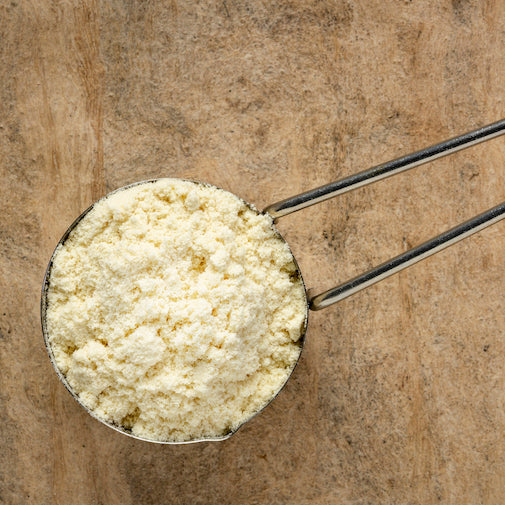Now more than ever, people are focused on the health and strength of their immune system.
Among the best practices to keep a healthy immune system include getting adequate sleep, consuming a healthy diet, exercising moderately, and reducing stress. One of the most vital nutritional aspects of the immune system is ensuring adequate protein in the diet.
People should consume complete, high-quality proteins such as meat, fish, eggs, dairy, and soy, for example, in their daily diets to ensure they are meeting their needs.
What is protein?
Amino acids are the building blocks of protein. When amino acids are joined together to form a long chain, a protein is formed. Depending on the combination of amino acids and the size of the chain, the protein will have a different structure and function.

Thousands of different proteins in the body are made up of 20 different amino acids. Protein forms the main building blocks of tissues and organs, as well as plays a vital role in the health of our immune system.
Protein is one of the most important macronutrients in our diet. Without enough protein, your overall health and body composition will be impaired.
How protein works to boost immune system and recovery
1. Protein increases antioxidant status
Research shows that protein can significantly increase antioxidant activity in the body (1). In fact, proteins can reduce reactive oxygen species, which are compounds that damage cells (2).
Whey protein, in particular, helps increase antioxidant status because it is rich in the amino acids cysteine and methionine.
These amino acids help produce glutathione, which is a vital compound in the body’s antioxidant defense system. Glutathione can protect cells against damage, toxins, and infection.
2. Protein builds and repairs tissues
Protein is needed to build and repair essentially all cells and body tissues such as bones, muscles, hair, skin, nails, and organs. Protein also is needed to make hormones and enzymes to support crucial functions such as blood clotting, fluid balance, and the immune system response.
If tissues and cells aren’t being properly repaired and maintained with the protein they need, the immune system cannot function at full capacity.

3. Protein can help fight viral and bacterial infections
The antibodies that help fight disease – such as immunoglobulins – are composed of protein. Antibodies help the immune system rid of bacteria, viruses, and other antigens that enter the body (3).
We need enough protein to manufacture white blood cells to combat these antigens. Other cells in the immune system also rely on protein to function optimally and operate the immune system effectively.
Why whey protein is especially beneficial for the immune system
Whey protein is especially great for the immune system. Of course, no one food can miraculously rid of the flu, but there are key nutrients – such as whey protein – that can help strengthen the body’s defense system.
This is in part due to its ability to increase the body’s glutathione status. Whey protein appears to boost glutathione production in some tissues (4).
According to the United States Dairy Export Council, glutathione is the center of the body’s antioxidant defense system that has a direct effect on immune function.
Compared to other protein sources, whey is unique in its immunomodulating effects. A grass-fed lean whey protein supplement like Naked Whey can be the perfect immune-boosting snack pre-workout, post-workout, or any time you get hungry during the day.

What happens if I don’t eat enough protein?
Without adequate protein intake, the immune system can weaken, leading to slower recovery from illness and a reduction in muscle mass.
In a state of illness, the body requires more protein. When the body is fighting to recover, it requires more resources to do so. One of these key resources to support the body’s increased needs is protein. Additional protein can help offset inflammatory responses associated with acute and chronic illnesses.
When someone is experiencing a viral infection, for example, higher dietary protein is needed to maintain optimal body function and promote recovery (5).
Too little protein in the diet can result in fatigue and weakness, as well as reduced immune function.

How much protein do I need?
It’s important for everyone to get adequate protein. Everyone’s needs vary slightly depending on body composition, nutrition goals, health status, gender, age, and body size, for example.
However, most adults need at least 0.8 grams of protein per kilogram of body weight, according to the DRI (Dietary Reference Intakes).
Many adults consume more than this, especially athletes. In some instances of illness, needs will likely be higher, even up to 2 grams of protein per kilogram of body weight.
Although protein needs may vary, keep in mind that It’s healthy to consume 10-35% of total calories from protein, according to the AMDR, or Acceptable Macronutrient Distribution Range.
It’s important to make sure you’re consuming enough protein on a regular basis to support essentially every function and structure of your body.
In particular, a grass-fed whey protein like Naked Whey may be a perfect addition to your diet to further enhance the immune-boosting effects of protein.









